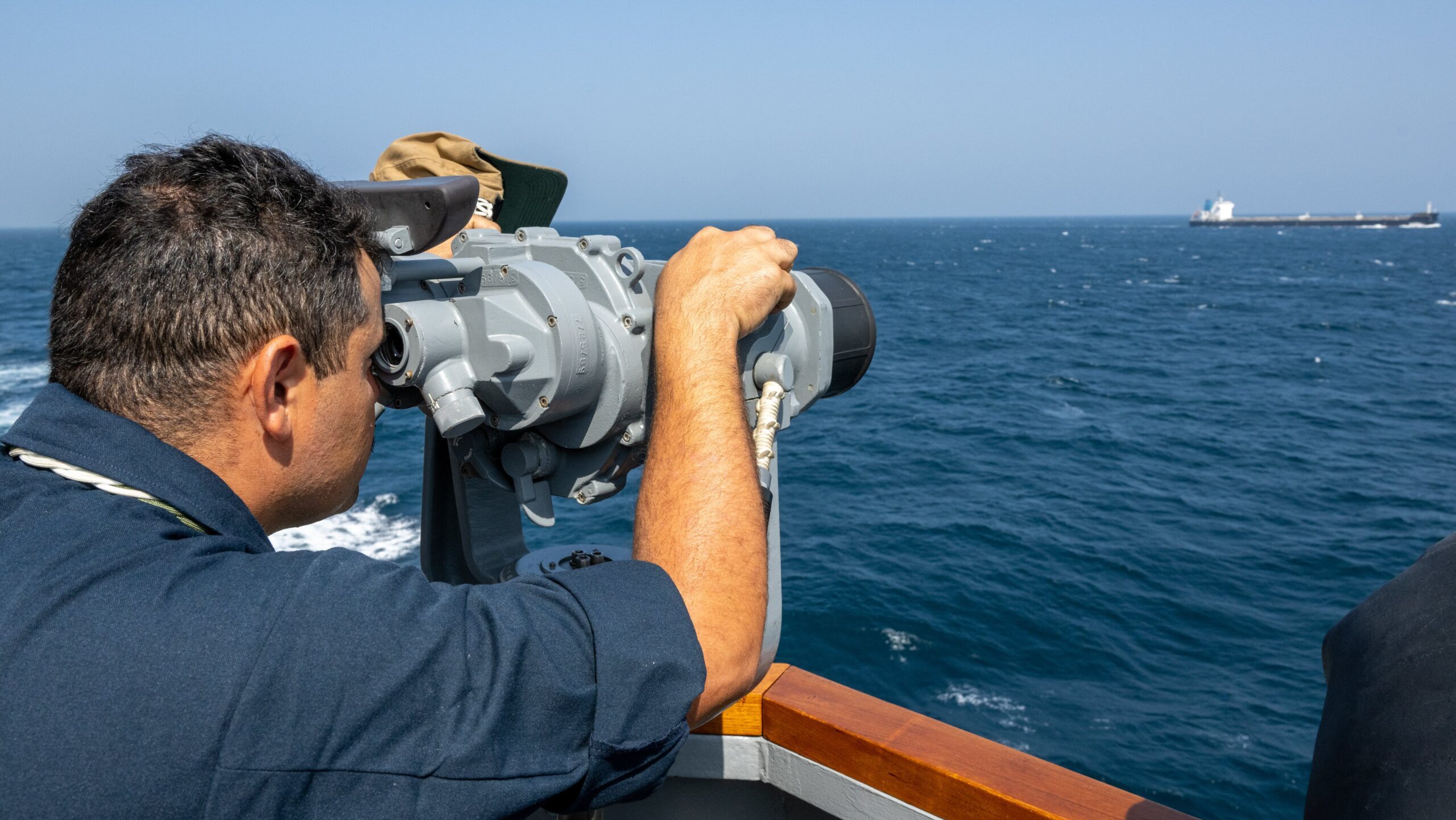
WASHINGTON — Military forces of the United States and the United Kingdom today launched strikes against “a number of targets” in Yemen that the Biden administration said were “used by Houthi rebels.”
“These strikes are in direct response to unprecedented Houthi attacks against international maritime vessels in the Red Sea — including the use of anti-ship ballistic missiles for the first time in history,” US President Joe Biden said in a statement late today. “These targeted strikes are a clear message that the United States and our partners will not tolerate attacks on our personnel or allow hostile actors to imperil freedom of navigation in one of the world’s most critical commercial routes.”
Biden said the strikes were conducted “together with the United Kingdom and with support from Australia, Bahrain, Canada and the Netherlands” and were “successful,” but offered no further details. In a separate statement, US Defense Secretary Lloyd Austin said the strikes “targeted the Houthis’ unmanned aerial vehicle, uncrewed surface vessel, land-attack cruise missile, and costal radar and air surveillance capabilities.”
A senior military official told reporters tonight the strikes were carried out by a “variety of manned aircraft” from the US Air Force and Navy and some fighter jets from Britain, and used “precision” munitions to minimize collateral damage. That official, and a senior administration official, declined to say what role the other nations played in the operation.
“This was a significant action and conducted with every objective and every expectation it will degrade, in a significant way, the Houthi capability to launch exactly the sorts of attacks they have conducted over the recent weeks,” the senior administration official said.
RELATED: Why Saudi Arabia and the UAE may sit out new US-led Red Sea initiative
Since Hamas’s Oct. 7 attack on Israel, Iran-backed Houthi rebels in Yemen have launched attacks on commercial shipping in the Red Sea, including the dramatic on-camera seizure of one vessel in November. The US Navy said it has knocked myriad of drones and missiles from the sky that were believed to be launched from Houthi-controlled territory.
According to Biden, “more than 50 nations have been affected in 27 attacks on international commercial shipping. Crews from more than 20 countries have been threatened or taken hostage in acts of piracy.”
“Last week, together with 13 allies and partners, we issued an unequivocal warning that Houthi rebels would bear the consequences if their attacks did not cease,” Biden said. “And yesterday, the United Nations Security Council passed a resolution demanding the Houthis end attacks on merchant and commercial vessels.”
On Jan. 9, the Houthis launched a mass attack of some 20 drones and three missiles that was “defeated,” according to the senior administration official who spoke to reporters late today. It was in the wake of that attack, the official said, that Biden approved today’s strikes.
In late December, two former US military officials who served in senior positions in the Middle East and an analyst argued in the pages of Breaking Defense that the US needed to strike Houthi targets in Yemen to put a stop to the Red Sea scares.
“Deterrence requires a clear US willingness to launch consistent, forceful strikes in Yemen that target the Houthi fighters and Iranian assets there to hold the Iranian regime directly accountable for the aggression it enables,” they wrote.
But the strikes also come amid longstanding fears that the conflict in Gaza would spiral into a regional war, presumably one reason the US has been hesitant to take such action against Houthi targets in Yemen — until now.
The senior administration official told reporters the intent of the strike today was not to escalate the conflict, but to degrade the Houthis’ ability to strike targets in the Red Sea.
“As to whether this will merely degrade or also deter [further Houthi action], I guess I can’t do better than what the president has said, which is that he will not hesitate to direct further measures to protect our people and the free flow of international commerce as necessary.
“So this may not be the last word on the topic. And when we have more to say and more to do, you will hear from us,” the official said.

